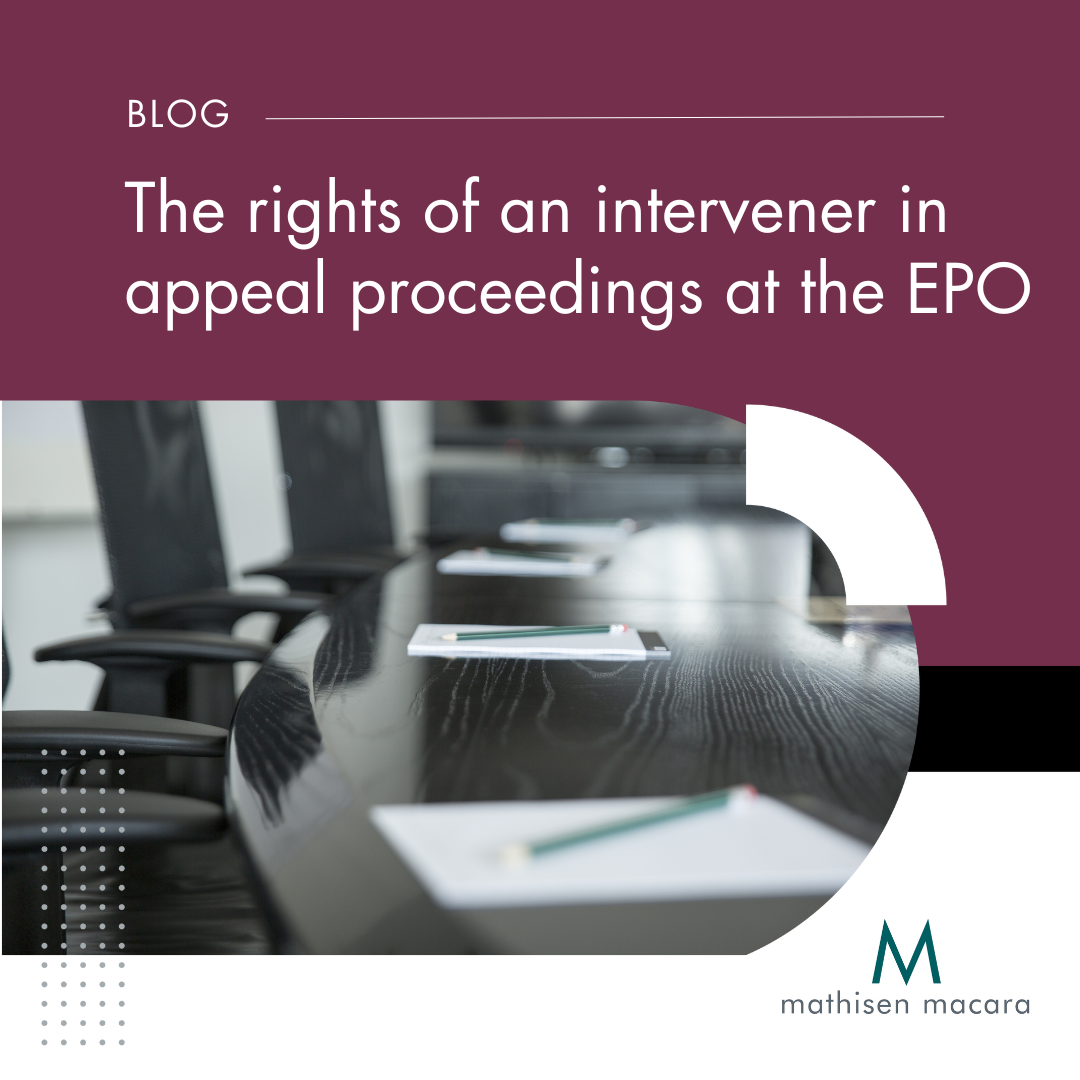The rights of an intervener in appeal proceedings at the European Patent Office
In G2/24, the latest decision issued by the European Patent Office’s Enlarged Board of Appeal, the board has re-affirmed the position regarding the status of an intervener in appeal proceedings in the circumstances where all appeals have been withdrawn.
Unusually in this case, as none of parties requested to be heard, the decision was issued without any oral hearing taking place.
By way of background, the EPO permits a party who is being sued for patent infringement to intervene in any ongoing opposition or appeal proceedings. Article 105 EPC gives the intervener the right to participate in the proceedings, including the right to raise new objections not raised by other opponents.
The underlying case was T1286/23 and the circumstances were somewhat unusual. A third party made two failed attempts to intervene while opposition proceedings were underway, due to not meeting the formal requirements, and a third, successful, attempt to intervene in the subsequent appeal proceedings. However, all of the original parties to the proceedings withdrew their appeals, leaving only the intervener standing.
In similar circumstances, previous Enlarged Board of Appeal decision G3/04 confirmed that since appeal proceedings are terminated following the withdrawal of all appeals, an intervener was not able to continue alone. The Board of Appeal in case T1286/23 indicated that they were minded to deviate from the approach taken in G3/04 and so referred the following question to the Enlarged Board of Appeal:
"After withdrawal of all appeals, may the proceedings be continued with a third party who intervened during the appeal proceedings? In particular, may the third party acquire an appellant status corresponding to the status of a person entitled to appeal within the meaning of Article 107, first sentence, EPC?"
In a comprehensive decision, which analysed the situation under the national laws of a number of states, the Enlarged Board in G2/24 confirmed the position of G3/04, reasoning that the legal framework has not changed. It thus remains the case that an intervener in an appeal does not have the status of an appellant as they were not adversely affected by the first instance decision. The intervener does not acquire any rights as compared to a non-appealing party. The logical conclusion then is that following the withdrawal of a sole appeal (or all appeals), the proceedings are at an end.
The facts and particular circumstances of the case behind G2/24 are perhaps unlikely to arise frequently however the decision does serve to confirm EPO practice in this area. As a practical step, if an intervention in proceedings is contemplated, it is better, if possible, to do so at the opposition stage, since the intervener would then have the right to appeal in their own right.
Our attorneys here at Mathisen & Macara LLP have extensive experience in all areas of EPO practice, including opposition and appeal proceedings, and would be pleased to answer any questions you may have.
